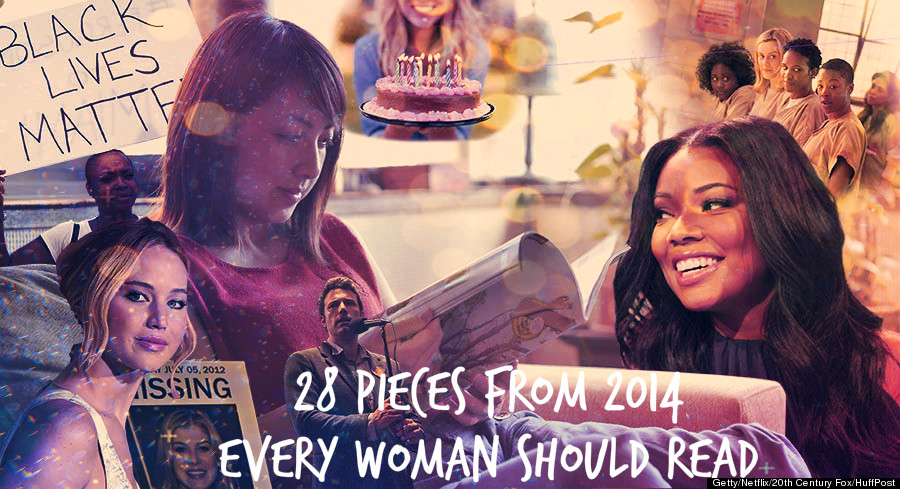Welcome to 2015!
Here at UCASA, the staff are sorta addicted to reading the news. So we decided to start a regular feature where we share the best stories about sexual violence that you may or may not have seen within the last week. I wish we could say that this is an original idea, but it isn't.
But, the stories we plan on sharing are original.... I hope that you like them.
 1. Why Its So Hard to Write About Rape, The Nation by Salamishah Tillet
1. Why Its So Hard to Write About Rape, The Nation by Salamishah Tillet"Is it possible to be sensitive to victims while still being a discerning journalist? [...] Generally speaking, rapes are difficult to report on because they take place out of the public eye, most often between acquaintances, and there are typically no witnesses other than the victim and the perpetrator. The reporter’s task is especially daunting when there is no accompanying trial to bring about physical evidence or compel testimony; he or she must go about gathering information without the use of subpoenas or search warrants.
The other problem: journalists are expected to remain neutral and maintain a healthy skepticism toward their subjects. In the case of rape allegations, they have the conflicting responsibilities of ensuring they don’t convict the perpetrator in the press or further traumatize the victim. Does the Rolling Stone controversy show that it’s impossible to be a good journalist and be sensitive to rape victims?'
2. Why I Don't Want to Hear Both Sides of Rape Cases, BuzzFeed by Wagatwe Wanjuki
 " Now we are at risk for setting a dangerous precedent for what survivors
must be willing to give if they tell their stories in the media: give
the names of the individuals who caused one of the worst — if not the
worst — moments of your life. It’s been years since I’ve seen my
assailant and I refuse to utter his name. Does that make me not worth
believing?"
" Now we are at risk for setting a dangerous precedent for what survivors
must be willing to give if they tell their stories in the media: give
the names of the individuals who caused one of the worst — if not the
worst — moments of your life. It’s been years since I’ve seen my
assailant and I refuse to utter his name. Does that make me not worth
believing?"3. The New Theory That Could Explain Crime and Violence in America, published on Medium for Matter, by Scott Johnson
 "Forget what you've heard about guns and drugs. Scientists now believe the roots of crime may lie deep within our biology. [...] The idea that we should intervene early in a troubled life is not a new
one. When I asked Tremblay about the policy implications of epigenetics,
he cited the importance of having nurses visit families at home to
advise on health and parenting — an idea that is over a century old and
known to bring about real health benefits. “The interventions are quite
simple,” he said. “But we know that, and have known that for a long
time.” The problem, he noted, was a reluctance to pay for those nurses.
If epigenetics becomes more widely accepted, the field’s first
contribution could be a renewed interest — and perhaps funding — for an
old idea."
"Forget what you've heard about guns and drugs. Scientists now believe the roots of crime may lie deep within our biology. [...] The idea that we should intervene early in a troubled life is not a new
one. When I asked Tremblay about the policy implications of epigenetics,
he cited the importance of having nurses visit families at home to
advise on health and parenting — an idea that is over a century old and
known to bring about real health benefits. “The interventions are quite
simple,” he said. “But we know that, and have known that for a long
time.” The problem, he noted, was a reluctance to pay for those nurses.
If epigenetics becomes more widely accepted, the field’s first
contribution could be a renewed interest — and perhaps funding — for an
old idea."4. 28 Pieces from 2014 that should be required reading for women, from the Huffington Post by Emma Gray and Nina Bahadur
 "In the social media age, sometimes it feels like the relevance of a
single story lasts about as long as it takes to tweet about it. It can
feel like a sensory overload, a near-constant "on to the next!" But once
in a while you read a piece that seeps into your core, and sticks with
you even months down the road..."
"In the social media age, sometimes it feels like the relevance of a
single story lasts about as long as it takes to tweet about it. It can
feel like a sensory overload, a near-constant "on to the next!" But once
in a while you read a piece that seeps into your core, and sticks with
you even months down the road..."
5. The Real Lolita, Hazlitt Magazine by Sarah Weinman
"The story of 11-year-old Sally Horner's abduction changed the course of 20th-century literature. She just never got to tell it herself. "